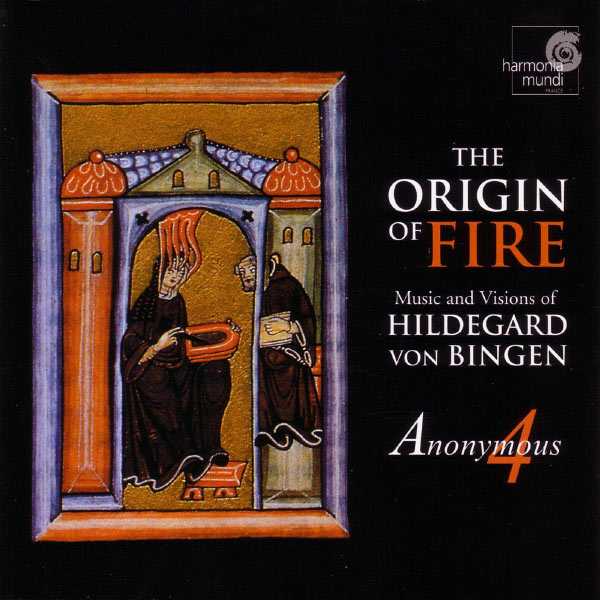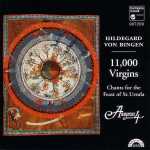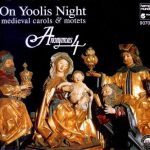
Composer: Hildegard von Bingen
Performer: Anonymous 4
Format: FLAC (tracks)
Label: Harmonia Mundi
Release: 2005
Size: 246 MB
Recovery: +3%
Scan: cover
The Origin of Fire – Music and Visions of Hildegard von Bingen
01. HYMN: Veni creator spiritus
02. SEQUENCE: Veni spiritus eternorum alme
03. ANTIPHON: O quam mirabilis est
04. VISION 1 “The fire of creation”: Et ego homo
05. VISION 1 “The fire of creation”: Et audivi
06. SEQUENCE: O ignis spiritus paracliti
07. VISION 2 “Wisdom and her sisters”: Vidi etiam
08. VISION 2 “Wisdom and her sisters”: Prima autem
09. RESPONSORY: O felix anima
10. VISION 3 “The fiery spirit”: Iterumque vocem
11. VISION 3 “The fiery spirit”: Et imago
12. HYMN: O ignee spiritus
13. VISION 4 “Love”: In vera
14. VISION 4 “Love”: Et audivi vocem
15. ANTIPHON: Caritas habundant in omnia
16. ANTIPHON: O eterne deus
17. HYMN: Beata nobis gaudia
After 18 years spent together on the road and in the recording studio, Anonymous 4 decided to call it a day at the end of its 2004 touring season. Sad news for the early music world to be sure, but Anonymous 4 has decided to go out with a bang rather than a whimper, producing as its last scheduled Harmonia Mundi album a second collection of Hildegard von Bingen to go with the group’s great first collection, 11,000 Virgins. The Origin of Fire: Music and Visions of Hildegard von Bingen differs from other offerings of a similar kind in that Anonymous 4 develops a context for Hildegard’s material, combining it with music that Hildegard and her nuns would have sung with regularity. In addition, Anonymous 4 has set to music, apparently for the first time, some of Hildegard’s text-only “visions” by utilizing recitation tones found in medieval sources. One usually finds such music without words, as they are designed to be adaptable for a number of texts within a certain portion of the liturgy — it is nice that Anonymous 4 has located something to hang onto them so that we may hear these psalm tones in recorded form.
The booklet for this release is especially nice, liberally illustrated with Hildegard’s visual art and drawings of herbs from medieval books. Susan Hellauer’s notes are succinct, elegant, and lay out the concept behind the program in the most comprehensive manner possible without being wordy or obscure. Full texts and translations into four languages are included in a handsome 72-page booklet. The performance of the pieces is, as usual, sublime, with the longer Hildegard works, such as the Responsory O felix anima and her extensive hymn-setting O ignee spiritus, being particularly worthy of comment.
The Origin of Fire does not altogether spell the end to Anonymous 4’s journey, as the members have agreed to regroup as needed for special projects. As a closer to what has been a stunning career, influencing the entire early music world, one could hardly wish for a better consummation of Anonymous 4’s collective talents than this.



